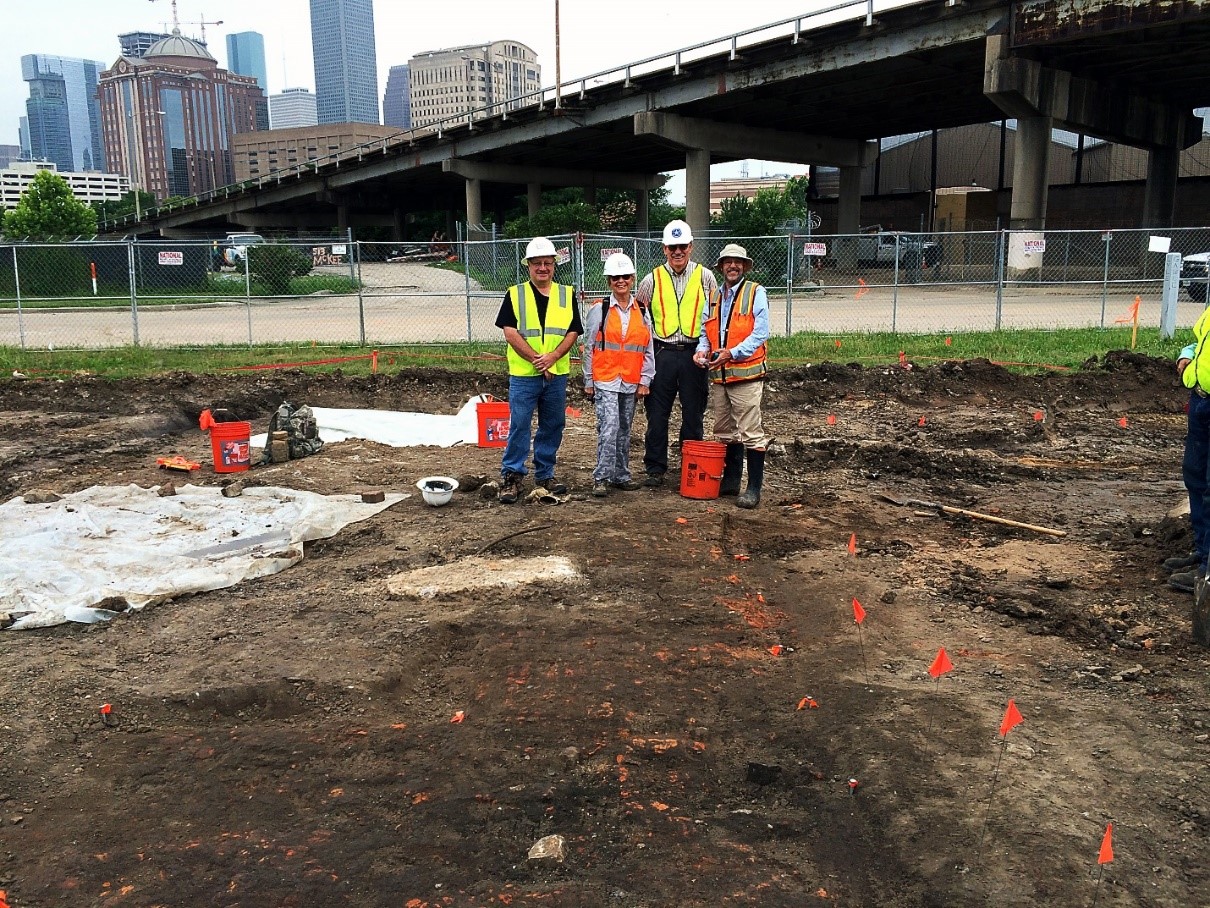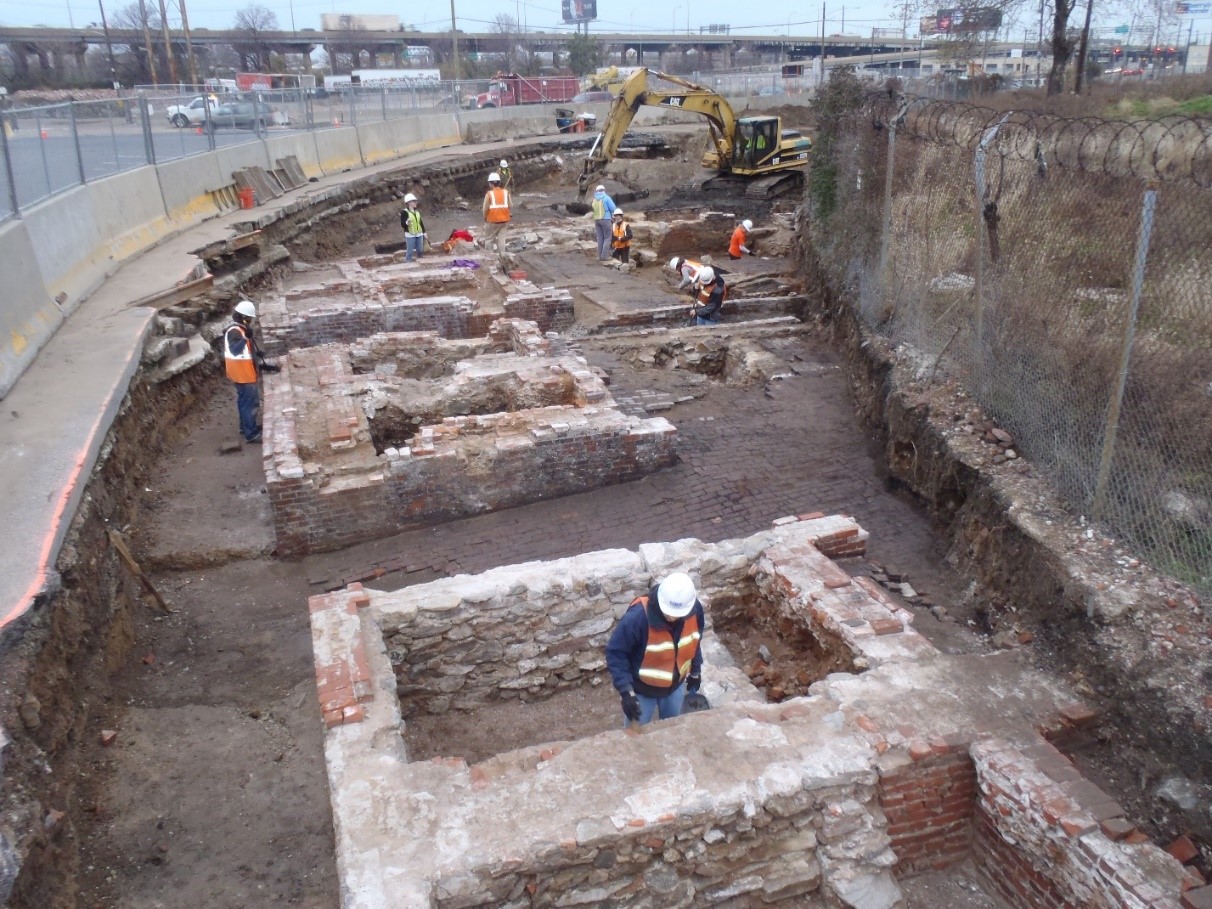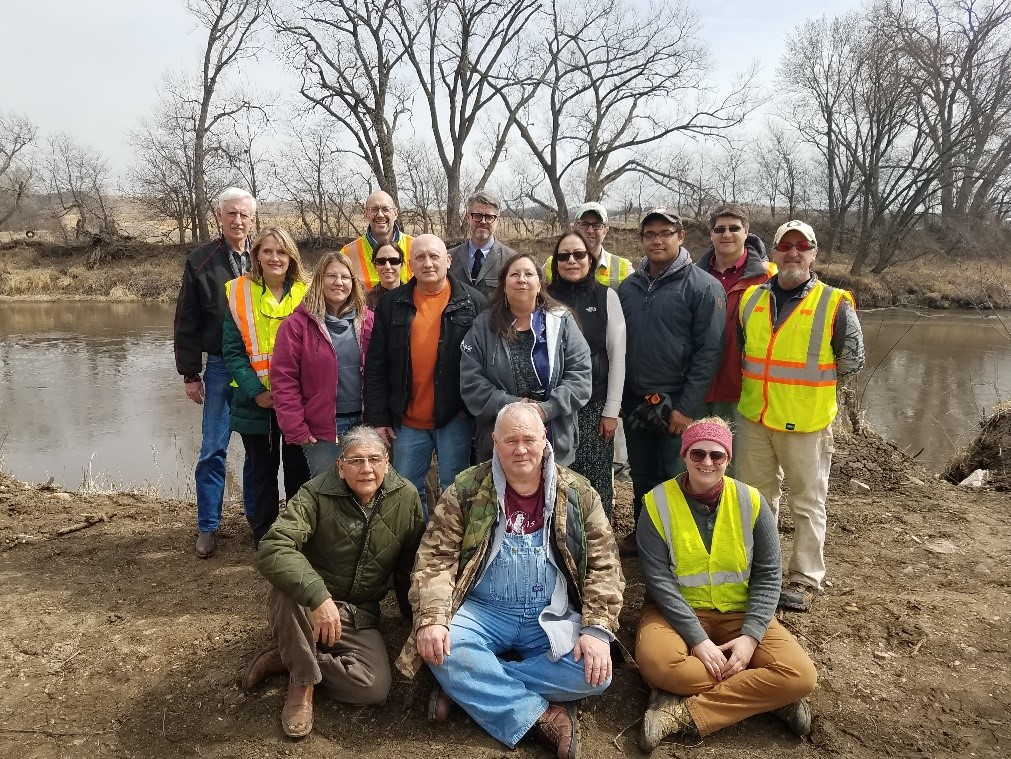SECTION 106 PARTICIPANTS: ROLES AND RESPONSIBILITIES
CONSULTING PARTIES
Section 106 is a consultative process, but who should be involved in consultation? Many different participants play a role in the Section 106 process. Certain parties are entitled to participate in Section 106 consultation, and these parties must be identified and invited into the process by FHWA (these parties are also referred to as “by-rights” consulting parties). Consulting parties that FHWA is required to invite per the Section 106 regulations are:
- Applicants
- SHPOs/Tribal Historic Preservation Officers (THPOs)
- Tribes
- Local governments
Individuals or organizations with a demonstrated interest in the project, including a legal or economic interest, or who are concerned with the effects of the project on historic properties, may request to be consulting parties. FHWA has the discretion to accept these organizations or individuals as consulting parties. FHWA’s decision is generally based on the historic preservation interests of these organizations or individuals.
Consulting party status entitles the participant to share their views, receive and review pertinent information, offer ideas, and consider possible solutions together with FHWA and other consulting parties.

Consulting parties for a project in the former Houston neighborhood of Frost Town visited the site and learned about the archaeological excavations that were conducted as part of the non-historic bridge replacement. Photograph courtesy of the Texas Department of Transportation.
Consulting parties ultimately help FHWA address any adverse project effects through mitigation measures.
APPLICANTS
Applicants for Federal assistance or approvals are entitled to participate in the Section 106 process as a consulting party. In the context of FHWA-funded projects or actions requiring FHWA approval, applicants are generally State DOTs and Local Public Agencies (LPAs). As discussed below, these applicants have a major role in conducting the Section 106 review process, in partnership with the FHWA DOs. The applicant typically reaches out to the FHWA DO to begin participation in the Section 106 process.
State Departments of Transportation
In addition to their role as parties to consultation, State DOTs, when they are applicants, may carry out many of the day-to-day tasks associated with the Section 106 compliance process. Although FHWA may rely on the State DOTs to conduct certain tasks, FHWA DOs retain responsibility for making formal Section 106 findings and decisions. Tasks carried out by State DOTs may include preparing information, analyses, recommendations, and documentation associated in each of the Steps in the Section 106 Process: 1) initiating the Section 106 process, 2) identifying historic properties, 3) assessing project effects on historic properties, and 4) resolving adverse effects on historic properties.
The Section 106 regulations require personnel conducting archeological and historical investigations to meet the Secretary of the Interior’s Professional Qualifications Standards (qualified professionals). Most State DOTs have the qualified professionals to carry out these tasks and/or review and approve the work of consultants hired by the State DOT.

Qualified professional archaeologists conduct investigations at the Dyottville Glassworks site located in the APE for the multi-phase Interstate Highway 95 project in Philadelphia. Photograph courtesy of the Pennsylvania Department of Transportation.
In many states, the State DOT has been delegated the ability to make some Section 106 findings and decisions without FHWA DO involvement. Delegated actions may include initiating and conducting consultation with SHPO and other consulting parties, identifying historic properties, and determining effects without FHWA involvement. As discussed earlier, this delegation is set out in a Section 106 PA executed among FHWA, SHPO, the State DOT, and the ACHP.
Also discussed earlier, some State DOTs have assumed full legal responsibility for Section 106 compliance through NEPA Assignment, acting as the Federal agency in the Section 106 process. In these states, the FHWA DO is only involved in the Section 106 process as stipulated in the state’s NEPA Assignment MOU, but FHWA retains legal responsibility for government-to-government consultation with tribes.
Further resources on State DOTs:
- AASHTO Practitioners Handbook #6: Consulting Under Section 106 of the National Historic Preservation Act (August 2016)
- FHWA Historic Preservation Program Home Page
Local Public Agencies
LPAs are municipalities, counties, regional authorities, and other types of local governments that receive funds for their transportation projects through one or more of the FHWA’s programs. Federal-aid Highway program funds are administered by a State DOT, and an LPA will work with the State DOT to meet Federal-aid program requirements, including Section 106 compliance, for the locally sponsored project.
As a sponsor of a Federal-aid transportation project, an LPA may be required to conduct Section 106-related studies, and consult with other Section 106 consulting parties, such as SHPO. The activities and degree of LPA involvement depends on the nature of the locally sponsored project and the State DOT’s practices and procedures. These activities, for example, may include:
- Initiating consultation with SHPO and other consulting parties.
- Preparing Section 106 scoping documentation for the State DOT to review.
- Conducting, in coordination with the State DOT, Section 106 technical studies, such as archeological and historic architectural surveys to identify historic properties within a project area.
LPAs would normally provide the resulting Section 106 information and documentation to the State DOT for its review, so the State DOT’s qualified archeological and historic architectural staff can assess the adequacy of the information and documentation.
LPAs generally do not have qualified staff for conducting Section 106-related investigations and preparing documentation on these investigations. Therefore, LPAs may need to hire qualified professionals who also understand and have experience with the State DOT’s Section 106 procedures and requirements.
Further resources on LPAs:
- Federal-aid Essentials for Local Public Agencies: Section 106 of the National Historic Preservation Act
- Federal-aid Program Administration: Local Public Agency
STATE HISTORIC PRESERVATION OFFICERS
The NHPA requires each state to appoint a SHPO who is responsible for the state’s NHPA preservation program. SHPO advises and assists FHWA in carrying out its Section 106 responsibilities.
As the state official responsible for preservation activities required under the NHPA, SHPO reflects the interests of the state and its citizens in the preservation of their cultural heritage. SHPO reviews and concurs on FHWA Section 106 findings and decisions. SHPO is also a signatory to agreement documents detailing how FHWA will resolve adverse effects to historic properties. Additionally, SHPO provides guidance for conducting cultural resource investigations, and often maintains digital cultural resource databases for the state. SHPO is also an important resource for identifying other consulting parties in the Section 106 process.
Further resources on SHPOs:
- For a list of SHPO websites, see National Park Service: State Historic Preservation Office.
- The National Conference of State Historic Preservation Officers (NCSHPO) represents SHPOs and enables communication between state preservation programs.
TRIBES
A Tribe is defined in §800.16(m) as an “Indian tribe, band, nation, or other organized group or community, including a Native village, Regional Corporation or Village Corporation... which is recognized as eligible for the special programs and services provided by the United States to Indians because of their status as Indians.” See Additional Information for more information on Native villages, Regional Corporations, or Village Corporations in Alaska.
The Section 106 regulations include specific requirements regarding consultation with Federally recognized Tribes (referred to as “Tribes” in this tutorial), as well as Native Hawaiian Organizations (NHOs). An NHO, as defined in §800.16(s)(1), includes “any organization which serves and represents the interests of Native Hawaiians; has as a primary and stated purpose the provision of services to Native Hawaiians; and has demonstrated expertise in aspects of historic preservation that are significant to Native Hawaiians.” See Additional Information for more information on NHOs.

Iowa Tribe of Kansas and Nebraska, Meskwaki Nation, Upper Sioux Community, Citizen Band Potawatomi Nation, Iowa DOT, Iowa SHPO, and the University of Iowa Office of the State Archaeologist attending a post-construction, on-site consultation meeting. Photograph courtesy of the Iowa Department of Transportation.
Government-to-Government Consultation with Tribes
FHWA, as an agency of the Federal government, has a unique legal relationship with Tribes as set forth in the U.S. Constitution, treaties, statutes, and court decisions. Consultation with Tribes is, therefore, conducted in a manner respectful of tribal sovereignty, recognizing the government-to-government relationship between FHWA and Tribes. In the context of the Section 106 process, FHWA consults with representatives designated or identified by tribal governments. These representatives are often THPOs.
Tribal Historic Preservation Officers
Under the provisions of the NHPA, a THPO is officially approved by the National Park Service to assume some or all of the responsibilities of SHPO for Federal projects on tribal lands. When a Tribe has a THPO (not all Tribes do), the THPO will generally be the primary tribal contact on Section 106 issues. When a Tribe does not have a THPO, the Tribe will inform FHWA who within the tribal government will serve as the primary contact for consultation. See Additional Information for more information on Tribes.
LOCAL GOVERNMENTS
A representative of a local government with jurisdiction over the area in which a project may affect historic properties is entitled to participate as a consulting party. They may be a county or city manager, the planning director, the local historic preservation planner officer, or other designated government contact.
In 1980 the NHPA was amended to include provision for Certified Local Government (CLG) status. To be designated a CLG, a town, village, city, or county must have established a local historic preservation commission and a system of surveying cultural resources. It is important to determine if a project location falls under the jurisdiction of a CLG, as a CLG may then be entitled to participate as a consulting party. Other types of local governments may include preservation commissions at various levels of local government, which consist of citizens from a variety of backgrounds who have an interest in the preservation of local resources.
OTHERS WITH A DEMONSTRATED INTEREST
The Section 106 regulations provide that additional parties with a demonstrated interest may request to participate in project consultation. These “invited consulting parties” include organizations and individuals having demonstrated legal or economic relationship to the project or affected properties, or concern with the project’s effects on historic properties.
FHWA, in consultation with SHPO/THPO and other consulting parties, may identify these additional consulting parties and invite them to participate prospectively based on prior interest or affiliation. The agency shall also consider all written requests from individuals and organizations to participate as consulting parties, and determine in consultation with the respective SHPO/THPO and Tribe, where tribal land is involved, which should be invited. It should be noted that the opportunity for interested individuals and organizations to request consulting party status is incumbent on adequate public notification in order that those with concerns can learn about a project and its potential effects on historic properties.
These invited parties are entitled to receive the documentation prepared to support consultation and make their views known at specific points in the Section 106 process. It is generally not productive to question whether the requesting parties’ interest in historic resources is sincere. The agency should be prepared to listen to and address the views of all consulting parties within the context of the Section 106 process, but is not obligated to carry out their preferences and recommendations to FHWA.
For questions or feedback on this subject matter content, please contact David Clarke.

